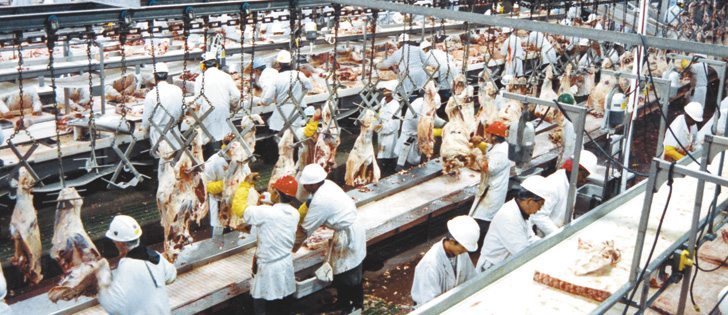CN Rail last week bowed to producer and federal government pressure and backed away at least temporarily from a plan to abandon 52 producer car loading sites in the Prairies.
Senior company officials told Rob Merrifield, minister of state for transport, that they will use the next three months to consult with farmers and affected communities.
No abandonments will happen at least until the new year.
Meanwhile, MPs on the House of Commons agriculture committee began hearings last week on whether existing Canada Transportation Act rules governing siding abandonment procedures are too lenient.
Read Also

Powdery mildew can be combine fire risk
Dust from powdery mildew can cause fires in combines.
Saskatchewan Association of Rural Municipalities president David Marit suggested the rules be changed to require up to a three-year waiting period instead of the current 60 days.
“We request a moratorium on future de-listing of rail producer car loading sites until such time as the Canadian Transportation Act can be changed to allow for a more transparent de-listing process,” he told MPs Sept. 18.
Producer car site abandonments have “frightening implications” for Saskatchewan, he said.
Last week’s dramatic turnaround by CN began when backbench Conservative MPs say they found out about the railway plan and began to complain to ministers.
On Sept. 16, Merrifield summoned senior CN executives to his Parliament Hill office to tell them he was “steamed” at the news.
“I called them in because I had just been talking to them the week before and they hadn’t mentioned it and I was a little steamed because they were blindsiding farmers, no question,” he said. “Farmers were out doing harvest, trying to keep the wolf away from the door and we’ve got CN saying we are going to close 52 of your sidings.”
By the end of the meeting, CN agreed to delay the action pending further consultations.
“I’ll be watching very closely to make sure this is a fulsome consultation,” he said.
However, Merrifield added that CN had followed the rules of applying for abandonment, advertising the application and waiting 60 days. The application came in July.
“They are following the regs,” he said. “My hands are tied. So let’s see if the regs need to be changed. In fairness to CN, I don’t think they were trying to slip something over on us.”
Marit said most Saskatchewan communities that would be affected were unaware of the proposal during the official comment period because the required advertising was done in small local newspapers not within the affected areas.
The advertising should be in widely circulated provincial daily newspapers or The Western Producer, he said. “By advertising the notification to de-list the sites in obscure and little-read regional publications, CN followed the letter of the law but not the spirit of the law.”
Plenty of warning
Richard Phillips, executive director of Grain Growers of Canada, told MPs the SARM proposal to make producer car loading sites a legal part of the railway would be an important improvement.
“Then the railways would be required to give a three-year process, not a 60-day process,” he said. “That would give municipalities, farmers a chance to get together, put together a business plan, find some financing and make an offer to buy them. That’s what we need is that timeframe.”
MPs said the issue before the committee is not necessarily the 52 sites targeted by CN for abandonment but the process itself. Most of the sites have seen little or no use for the past five years.
Phillips said that producer car use is increasing and in many cases, farmers might have used the targeted sites if they knew they could be lost.
“Sometimes we have to be woken up a little bit and I think that’s some of the case here,” he said.
“We’ve woken up and it’s really got our attention too.”
















